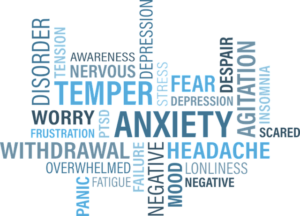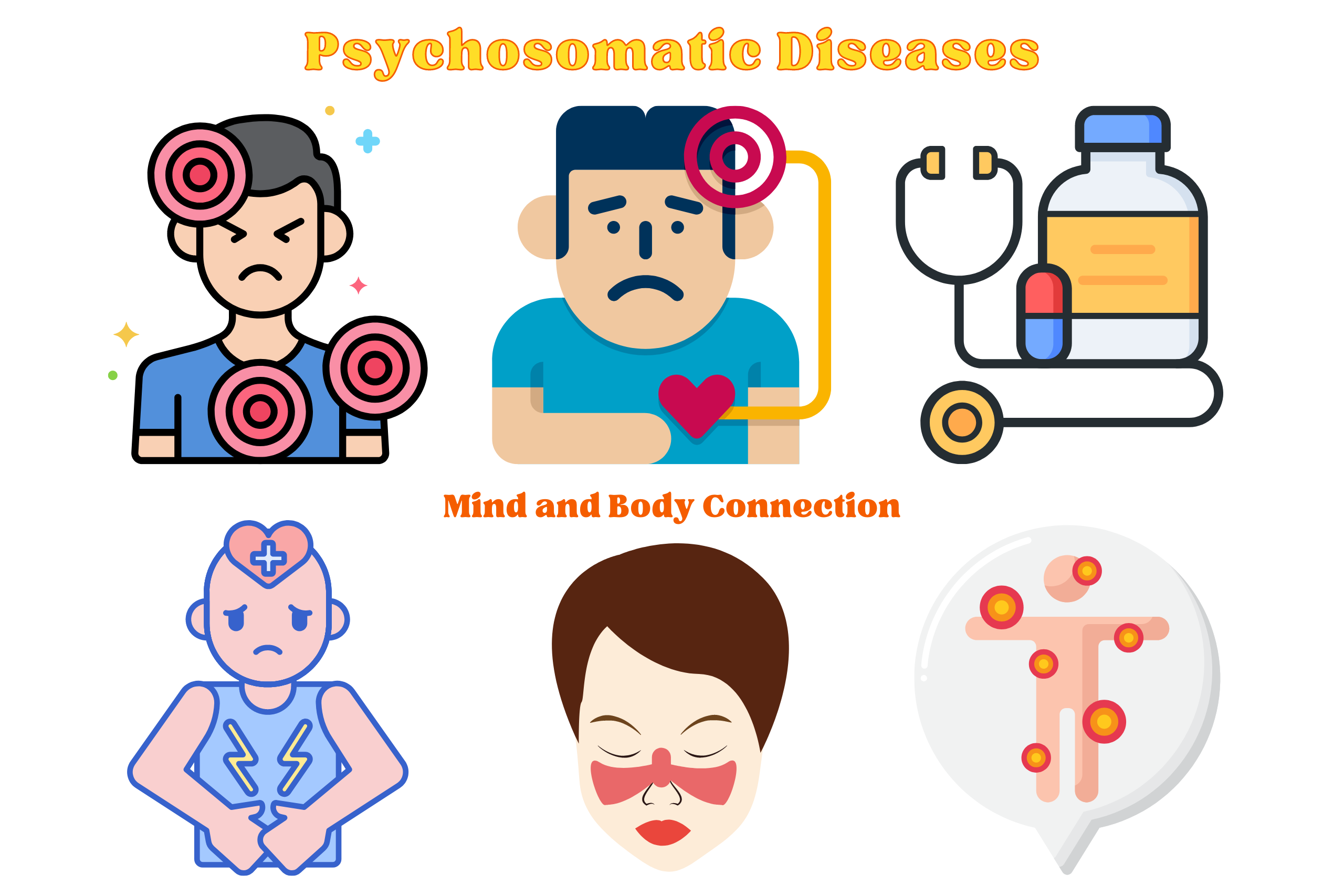Psychosomatic Disorders Conditions
Psychosomatic disorders represent an ailment that bridges the connection between the mind and body. This manifests in a manner where the body’s physical functioning is impacted by psychological stress, either causing illness or exacerbating existing conditions.
These disorders are also referred to as Psycho-physiological disorders. The root of this disorder lies in the improper stimulation of the autonomic nervous system, responsible for regulating internal organ functions, resulting in dysfunction.
Causes of psychosomatic disorders
The precise origin of psychosomatic disorders remains unknown. Research indicates that physical maladies linked to mental stress stem from heightened nerve impulses transmitted from the brain to other body parts. This can lead to the release of adrenaline into the bloodstream, inducing a state of anxiety. Various life factors can trigger this condition, including:
-
Genetics:
- Some studies suggest that specific genetic variations in an individual may directly contribute to this condition.
-
Irregular physiological conditions:
- Changes in glucose metabolism, amino acid levels in the bloodstream, and similar factors can be responsible for the emergence of psychosomatic disorders.
-
Stress Influence:
- Individuals exposed to stressful circumstances such as trauma, abuse, recurring illnesses, fear, depression, anger, guilt, insecurity, and other challenging situations are also prone to this disorder.
-
Family Dynamics:
- Parental absence, parental behavior towards a child, and relationship issues can also serve as significant origins of psychosomatic disorders.
Influence of Psychological Factors
When a person is dealing with a common medical condition like essential hypertension, various psychological factors, such as anxiety and stress, can impact that condition in several ways:
- Altered Timelines: Stress can modify the timeframes involved in the development, worsening, or recovery of the underlying medical condition. For instance, anger can prolong periods of high blood pressure.
- Stress Intrusion: Psychological factors have the potential to interfere with the treatment of the general medical condition, creating complications.
- Aggravation: Anxiety: related factors can exacerbate the symptoms of the medical condition, intensifying its seriousness.
- Risk Factor Generation: The presence of stress can lead to the emergence of additional risk factors for health issues like diabetes, headaches, and more.
Categories of Psychosomatic Disorders
Psychosomatic disorders can generally be categorized into three groups. In the first category, individuals experience both mental and physical illnesses, with symptoms and management of one condition complicating the other.
The second category involves individuals who develop mental health issues as a result of their medical condition and its treatment. For instance, some patients may become depressed while undergoing cancer treatment.
The third category is known as somatoform disorders, where individuals with mental illness exhibit one or more physical symptoms even when there is no associated medical condition.
This category includes various conditions:
– Hypochondriasis: In this condition, individuals perceive minor physical symptoms as severe diseases, like mistaking temporary flatulence for colon cancer.
– Conversion Disorder: Individuals who lack any medical illness may experience neurological symptoms such as seizures that affect their movement and senses.
– Somatization Disorder: This involves individuals experiencing frequent headaches and diarrhea without any connection to a serious medical condition.
– Body Dysmorphic Disorder: People with this condition become extremely distressed about their body’s appearance, including concerns about wrinkles and obesity, sometimes leading to anorexia.
– Pain Disorder: Individuals with this condition experience severe pain in a specific body part for an extended period, typically six months to a year, without any identifiable physical cause, such as migraines, tension headaches, or back pain.
Risk Factors for Psychosomatic Disorders

Psychological factors can have a certain degree of influence on various medical conditions. For instance:
– Diabetes: Individuals with Type-2 diabetes are more vulnerable to stress-induced hypertension. The same stress factors that contribute to hypertension can also worsen the diabetic condition.
– Cancer: The development of cancer involves multiple causative factors. Research indicates that psychological stress can impact the growth and spread of tumors, potentially worsening the state of cancer.
Several medical conditions can be linked to mental stress, including:
– Hypertension: Some psychological triggers, such as negative emotional states, frequent exposure to stressful situations, and social factors like economic status and life events, indirectly affect blood pressure levels.
– Coronary Heart Disease: Associated Arteriosclerosis: Studies have demonstrated a correlation between the development of coronary heart disease and various risk factors, including depression, anxiety, and stress.
– Respiratory Problems: Emotional stress plays a significant role in triggering bronchial asthma, alongside other contributing factors.
– Gastrointestinal Issues: The formation of peptic ulcers can be associated with the stressful life events experienced by an individual.
FAQ: People Also Ask
Read more on Treatment Options for Psychosomatic Disorders and Know about Your Confidant
Samarpita Nayak, Co-Founder & Mental Health Counsellor, YOUR Confidant




